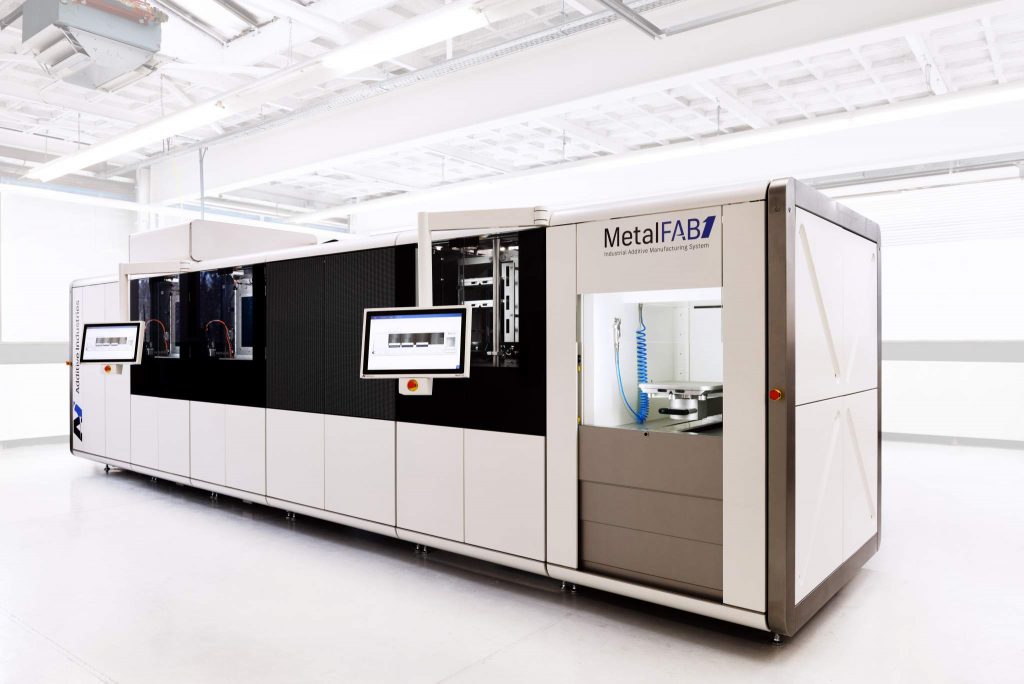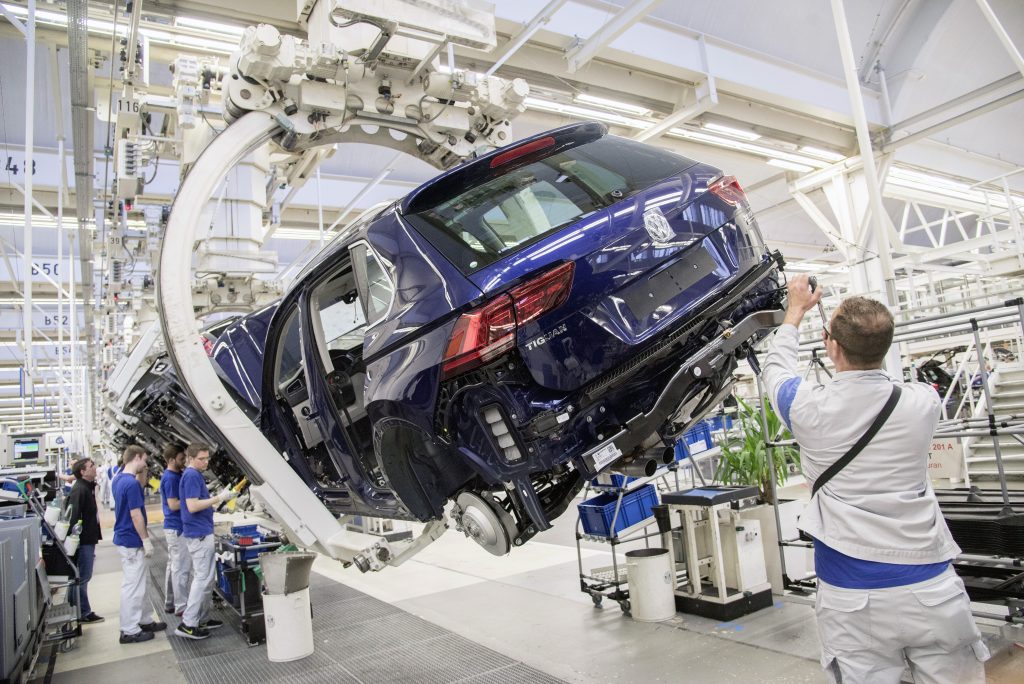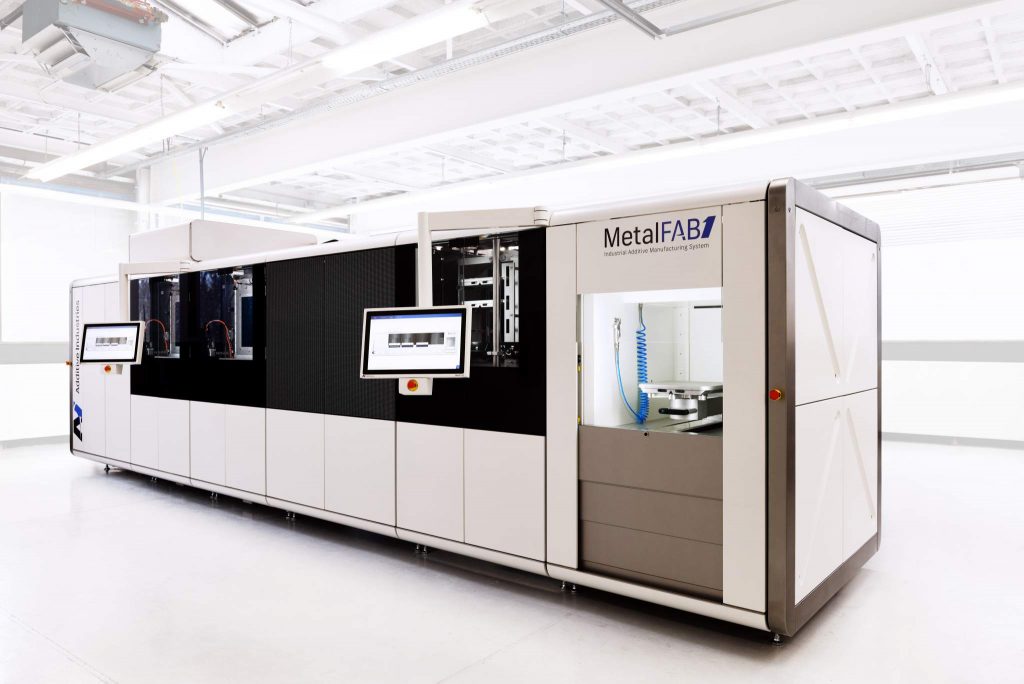German car manufacturer Volkswagen Group, Europe’s largest carmaker, has acquired a second MetalFAB 3D printing system from Netherlands based metal 3D printer manufacturer Additive Industries.
Volkswagen has also invested in parameter development, and has implemented MetalFAB’s Powder Load Tool and Powder Recovery Station to increase efficiency and reduce waste.
The MetalFAB system includes full-field lasers and automated build changeovers, allowing for high productivity rates and lights-out operations.
Volkswagen reportedly chose to expand their MetalFAB portfolio due to the 3D printer’s high level of automation, which eliminates manual processes and enhances safety. Moreover, the system’s modularity reportedly allows Volkswagen to expand their production capacity without major investment.
“We as Additive Industries are pleased to be able to provide Volkswagen Group with their second MetalFAB system,” commented Mark Massey, Chief Executive Officer at Additive Industries. “We are here to help them expand their capabilities in the field of additive manufacturing and move towards the next step in the automotive industry.”

Volkswagen and additive manufacturing
This acquisition adds to Volkswagen’s existing metal 3D printing capabilities, which includes a previously purchased MetalFAB 3D printer.
Back in 2018, Volkswagen opened a 3D printing center, which utilized various metal 3D printing technologies to produce automotive components. According to Additive Industries, their MetalFAB system has played a significant part in Volkswagen’s additive manufacturing success.
Last year, the company announced that Volkswagen had achieved 650% cost reduction on Tiguan production tooling nozzles, using their initial MetalFAB metal 3D printer. According to the published case study, the fully automated MetalFAB system condensed manufacturing lead time to two days, and enabled the production of 48 parts in a single build in 15 hours.
Additive Industries also claims that their MetalFAB system significantly reduced material usage, and allowed for part consolidation which removed several manufacturing steps. The material freedom of the MetalFAB system also allowed Volkswagen to use stainless steel rather than titanium to produce the part. This offered significant cost savings, without compromising the part’s mechanical performance.
Away from Additive Industries, Volkswagen has also looked to other 3D printer manufacturers to extend their metal additive manufacturing capabilities. In 2021, the company announced plans to utilize binder jet 3D printers from 3D printer OEM HP, and software from industrial manufacturing firm Siemens, at its main plant in Wolfsburg. Through this partnership, Volkswagen hopes to reduce costs and increase the productivity of its manufacturing process. By 2025, the company aims to manufacture up to 100,000 3D printed automotive components at its Wolfsburg plant each year.

3D printing and the automotive industry
Volkswagen is by no means the only car manufacturer to employ additive manufacturing. Last January, Japanese automotive multinational Toyota revealed that using Zortrax 3D printers had helped them to optimize vehicle assembly operations.
At two of its Polish facilities in Walbrzych and Jelcz-Laskowice, the company replaced traditional CNC machining with Zortrax M300 Plus systems to 3D print assembly jigs and fixtures on demand. As a result, Toyota reportedly reduced costs and lead times behind manufacturing essential tools and spares, optimizing production line performance.
Elsewhere, in 2021 it was announced that Audi had expanded its use of EOS 3D printing for hot form tooling, at its Metal 3D Printing Centre in Ingolstadt. By expanding its additive manufacturing capabilities at the facility, the company can reportedly produce twelve different segments of four hot forming tools. These are later used to assemble car models such as the Audi A4 saloon.
Subscribe to the 3D Printing Industry newsletter to ensure you keep up with the latest 3D printing news. You can also follow us on Twitter, like our Facebook page, and subscribe to the 3D Printing Industry Youtube channel to access more exclusive content.
Are you interested in working in the additive manufacturing industry? Visit 3D Printing Jobs to view a selection of available roles and kickstart your career.
Featured image shows a Volkswagen Tiguan on the production line. Photo via Volkswagen Group.
